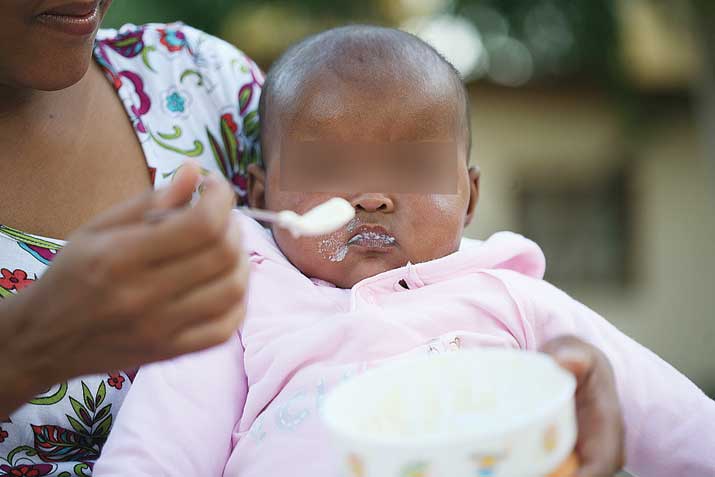Government’s efforts to control and regulate the advertising of infant’s milk and food in order to promote breastfeeding have been frustrated by organizations who continue to do so, specialists say.
According to the Marketing of Food for Infants and Young Children Regulations of 2005, the advertising of infant milk and other designated products including all food products for infants and children of up to three years of age is prohibited in Botswana. However, according to the Food Safety Principal Scientific Officer under the Department of Health in the Ministry of Health (MoH), Hussein Tarimo, the baby food industry continues to undermine women’s confidence in their ability to breastfeed through clever social marketing to boost their sales, and has created a benign acceptance of its products.
“There are many compliance challenges of this law in Botswana. Most of the violations are committed by some international baby food manufacturers, distributors, supermarkets and pharmacies. he revealed to The Gazette.
He maintained that baby food companies give the wrong impression that promoting breast-milk substitutes is like any other type of advertising. “However, artificial feeding products are not like other consumer or even food products. The object of artificial feeding is the replacement of a fundamental reproductive activity that destroys the natural sequence of birthing to feeding. Artificial feeding is inferior to breastfeeding, it is costly and, in many locations tragically harmful,” he said.
He further explained that while no one would suggest a complete ban on infant feeding formula, it is imperative that women are not misled by misleading information about artificial feeding, and that health-care systems do not deliberately or inadvertently support inappropriate artificial feeding or diminish the importance of breastfeeding. He explained that deceitful marketing of baby foods include the association of artificial feeding with being a good mother, and persuading mothers that formula milk is nutritionally better, as well as more fashionable and modern than breast milk.
“Lack of most mothers’ knowledge about the sub-optimal nutritional value of artificial milk and the important protective immunological properties of breast milk has helped create a more accepting environment for artificial feeding, especially among mothers who have to work outside the home,” he said, and reiterated that breastfeeding is an unequalled way of providing ideal food for healthy growth and development of infants and young children.
Tarimo revealed that, as a global public health recommendation, infants should be exclusively breastfed for the first six months of life to achieve optimal growth, development and health. Thereafter, to meet the evolving nutritional requirements, infants should receive nutritionally adequate and safe complementary foods while breastfeeding continues for up to two years of age or beyond.
During a recent workshop and commemorations of breastfeeding, many health workers also voiced their concern over the decline of breastfeeding to artificial baby food and concurred to the importance of promoting breast milk and ensuring appropriate marketing and distribution of breast milk substitutes.
In her remarks during the breastfeeding workshop, MoH Public Health Principal Health Officer, Keitumile Modise urged school going and working mothers to use the milk expression technique to save breast milk in appropriate storages, to be given to their babies while they are away as opposed to using artificial baby food.

